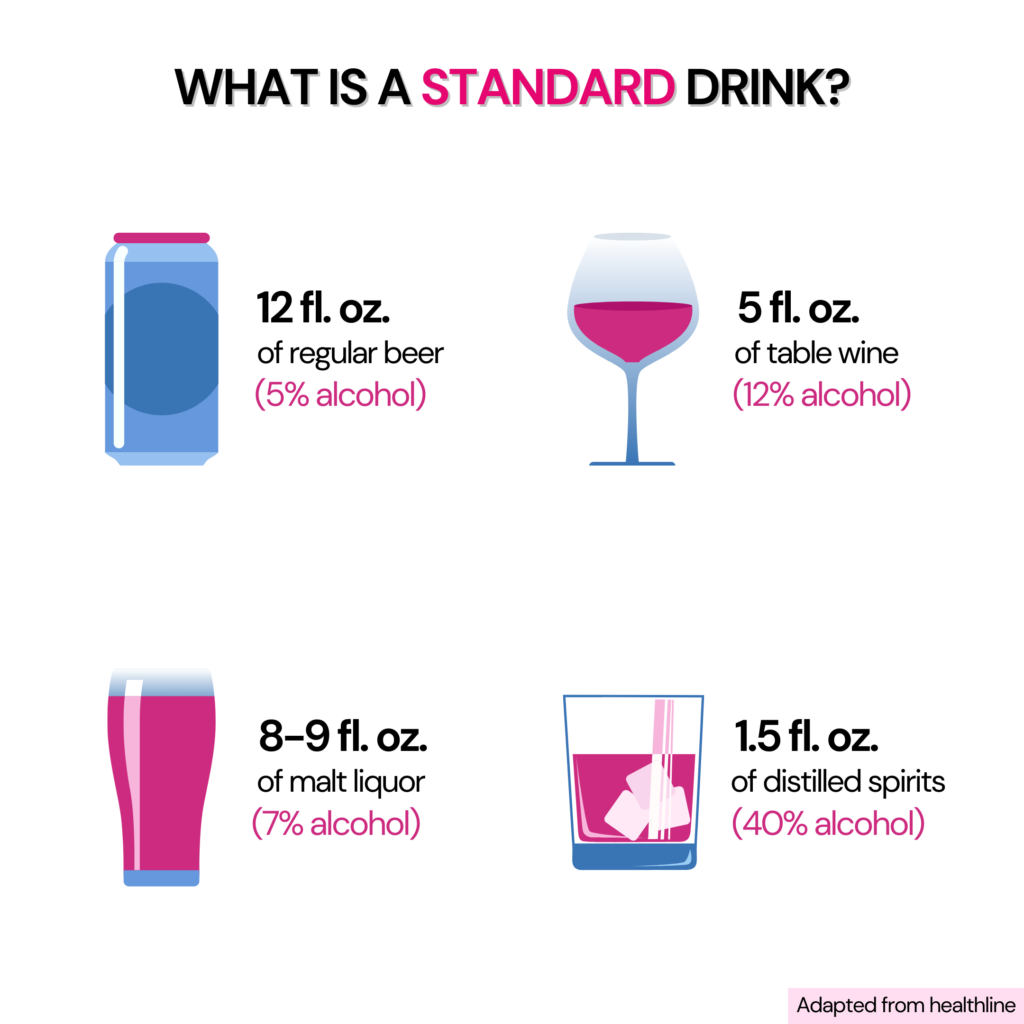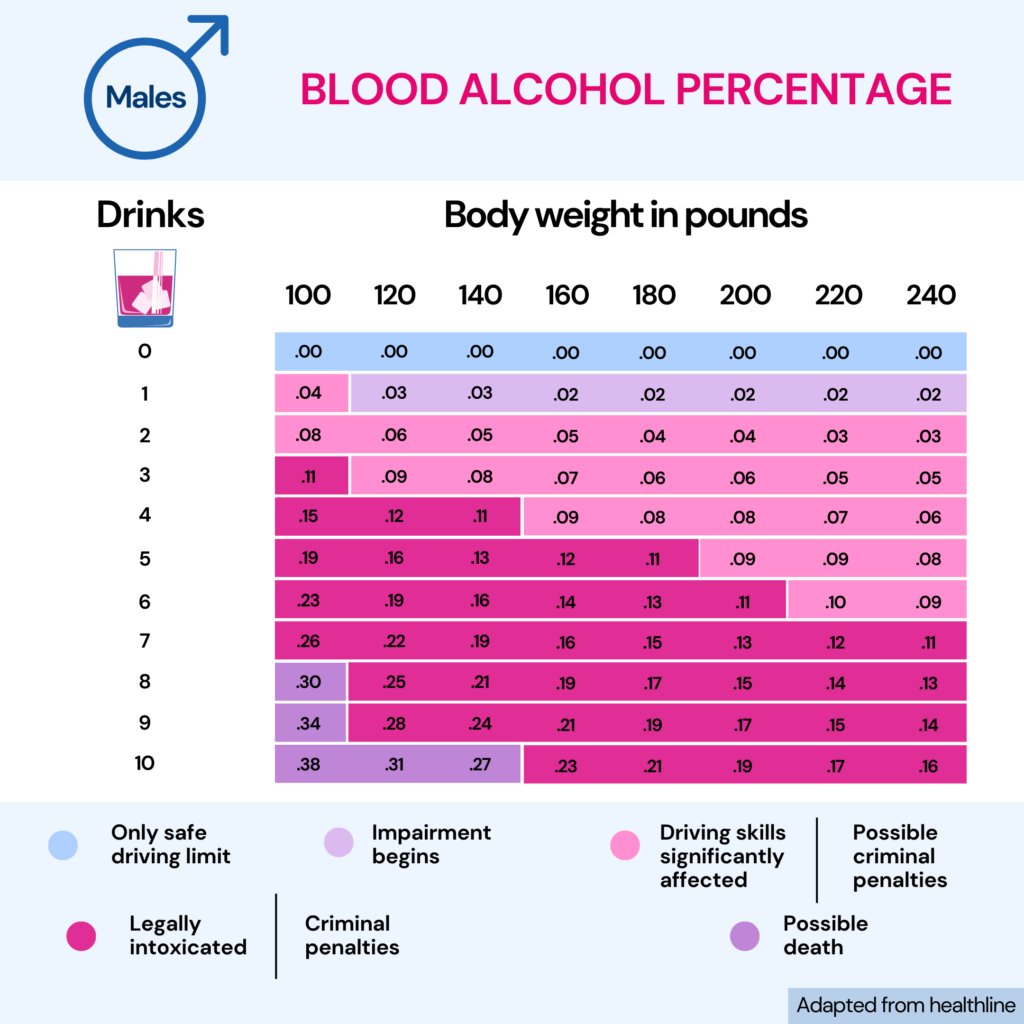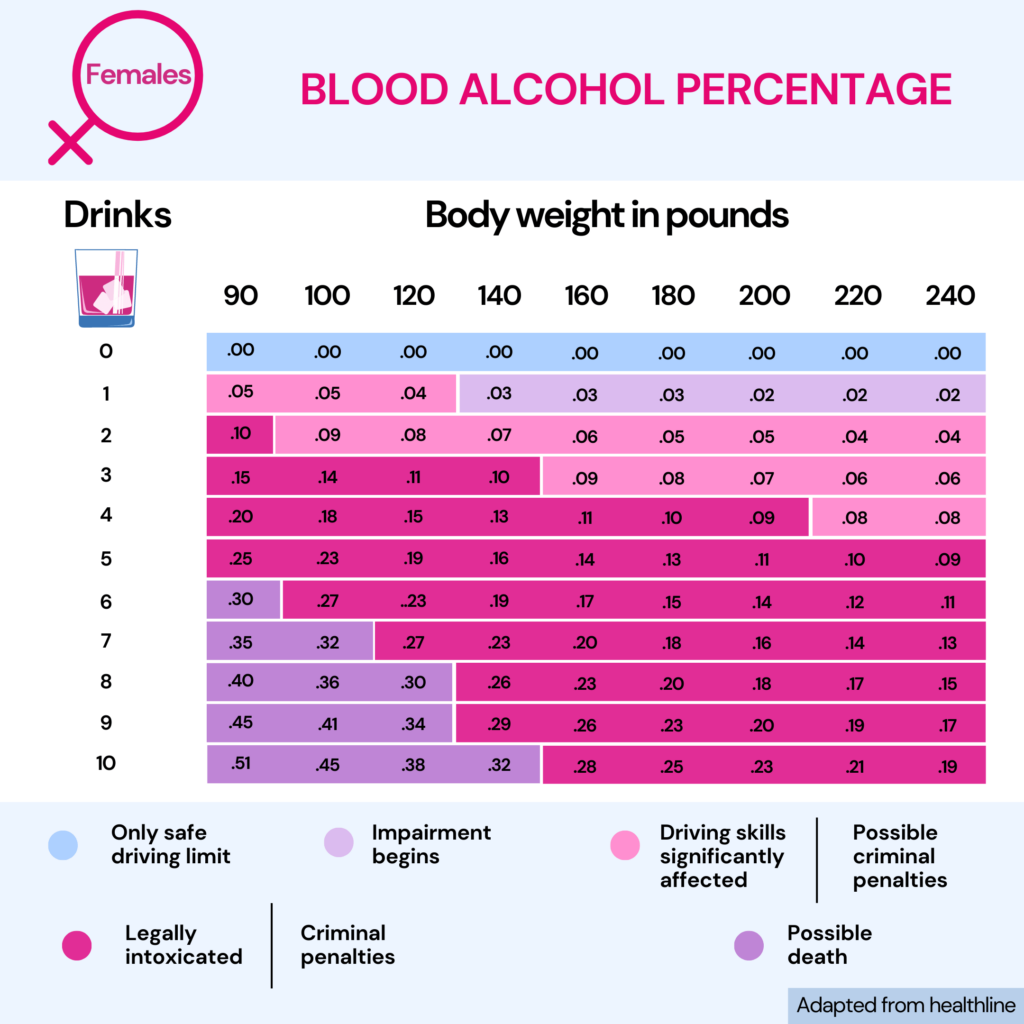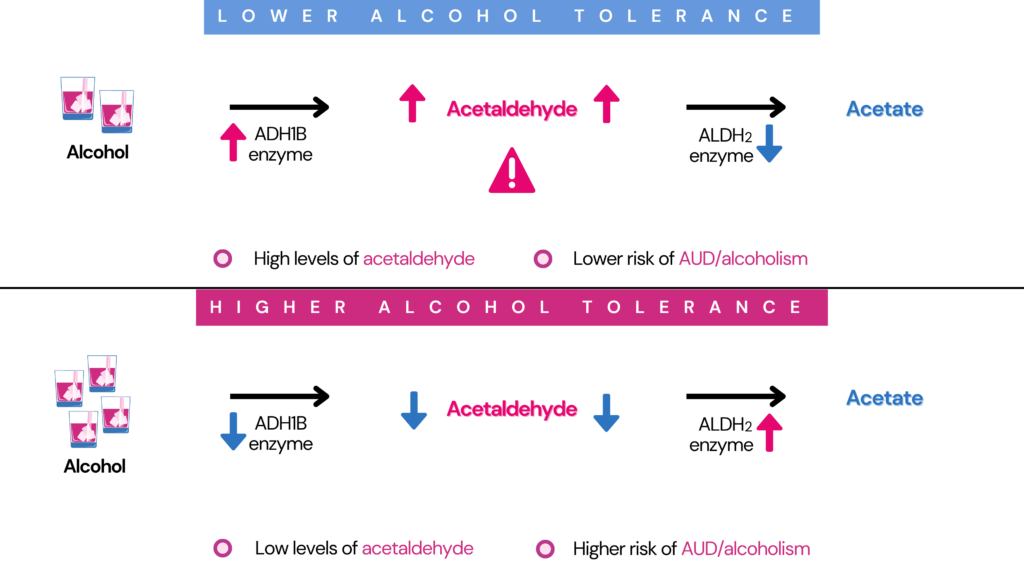Having a drink once in a while is acceptable. However, if you drink frequently and for an extended period, you develop alcohol tolerance.
While most people may boast about their tolerance to alcohol, when unchecked, it can lead to harmful health consequences, including addiction and liver disease.
Several reasons affect your tolerance to alcohol, and no two people will have the same alcohol tolerance.
Let’s explore the various factors of alcohol tolerance and how your genes have a role to play in it!
What Is Alcohol Tolerance?
Tolerance is your body’s ability to suppress normal responses to substances and toxins.
Alcohol tolerance refers to a situation where continuous drinking results in the same amount of alcohol having a lesser effect on the body.
An increased amount of alcohol may be required to produce the same effects.
Your alcohol tolerance depends upon how your body responds to it in different situations, how much remains in the system, and the efficiency in eliminating it.
Someone with a greater tolerance usually enjoys many drinks without feeling “drunk.”
Alcohol tolerance is one of the many prominent symptoms of alcohol dependence.
This is, in fact, a stage of alcohol addiction when you need a drink to prevent alcohol withdrawal symptoms.

Is Alcohol Tolerance Genetic?
Genetics plays a significant role in alcohol tolerance.
Changes in the genes, including ADH1B and ALDH2, that participate in alcohol metabolism can influence alcohol tolerance in individuals.
How fast or slow your body breaks down or metabolizes alcohol is influenced by your genes.
Find Out How Well Your Genes Can Process Alcohol
The Basics Of Alcohol Metabolism
Studies report that genetics influences 40% to 60% risk of alcohol-related disorders.
Alcohol is broken down or metabolized by 3 main enzymes.
Any differences in these enzymes make people metabolize alcohol differently.
In fact, genetic differences in these enzymes are responsible for why different ethnic groups have higher or lower alcohol-related problems.
- The alcohol dehydrogenase enzyme (ADH1B or ADH1C) converts alcohol into a toxic metabolite called acetaldehyde.
- The acetaldehyde dehydrogenase 2 (ALDH2) enzyme converts this toxic product into a non-toxic product called acetic acid.
- This acetic acid is excreted via urine.
Higher levels of ADH enzymes and lower levels of ALDH2 enzymes can result in the build-up of acetaldehyde.
This leads to poor alcohol tolerance.
A type of the ADH gene called the ADH1B*2 (primarily found in Asian and Polynesian populations) produces the ADH1B enzyme with 100-fold activity.
This protects people with this gene variant from alcohol dependence.
The ALDH2 gene produces the ALDH2 enzyme.
A genetic mutation in the ALDH2 gene makes the gene less active or inactive.
A type of this gene called the ALDH2*2 gene has been observed in the Asian population.
This type produces the ALDH2 enzyme with 85% lower activity in the liver and inhibits voluntary consumption of alcohol by 50%.
No Ancestry DNA Test Results? No Problem
Here's how you can still get your alcohol dependence report
Alcohol Intolerance And Alcohol Flush
Alcohol intolerance is a genetic condition in which the body prevents the effective breakdown of alcohol.
While many people do not develop any adverse reaction to consuming alcohol, some people who are alcohol intolerant may show some signs and symptoms.
When these alcohol-intolerant people consume alcohol, they experience an unpleasant phenomenon called a flush reaction.
A few common symptoms of alcohol flush reaction are:
- A red face or flush
- Hives
- Nausea
- Low blood pressure
- Episode of migraine
- Worsening of asthma in people with the condition.


Can Alcohol Tolerance Lead To Alcoholism?
While many people may think their alcohol tolerance is good, it is not!
One of the dangers of high alcohol tolerance is binge drinking and alcoholism.
Since people with high alcohol tolerance can consume and tolerate large amounts of alcohol, they are more likely to drink more.
With increased consumption, alcohol influences changes in the brain.
For example, you are more likely to feel happy or exhilarated when you drink.
This acts as an incentive, prompting you to drink more, eventually leading to alcoholism.
Along with alcohol tolerance, other factors that may contribute to alcoholism are:
- Binge drinking every week
- Having a parent with alcoholism
- Low self-esteem
- High-stress levels
- Living in a community or environment where heavy drinking is normal
Is Alcoholism Inherited?
While several factors influence alcoholism, family history is one of them.
One does not inherit it in a straightforward manner.
However, you can inherit the gene changes that increase your risk of developing alcoholism can be inherited.
So, while you may not inherit the addiction itself, you may receive the genes that increase your risk of developing alcoholism.
It has also been observed that since multiple genes play a role in alcohol use disorder, it may skip a generation.
Other Factors That Influence Alcohol Tolerance
Factors that may influence alcohol tolerance are:
- Drinking habits (type of alcohol consumed, frequency, and amount of consumption)
- Genetics
- Gender
- Age
- Your overall health
- Family history of alcohol abuse
Genetic Test For Alcohol Tolerance
While there are no tests for alcohol tolerance, genetic testing at home and a medical facility are available for alcohol intolerance.
A genetic test for alcohol intolerance involves taking a blood, saliva, or tissue sample to observe changes in the ADH and ALDH genes.
Certain gene changes that lower ADH enzyme levels and increase ALDH enzyme levels can increase your alcohol tolerance.
On the other hand, gene changes resulting in high ADH and low ALDH enzyme levels can decrease your alcohol tolerance, lowering your risk for alcohol use disorders.

A genetic test can help reveal what changes you carry in these genes and help you understand your risk for alcohol use disorders.
Get Your Genetic Test For Alcohol Tolerance
Summary
- Alcohol tolerance refers to the body's ability to suppress normal responses to alcohol, and it is a prominent symptom of alcohol addiction.
- Genetics plays a significant role in alcohol tolerance, with certain genes (such as ADH1B and ALDH2) affecting alcohol metabolism and influencing tolerance levels.
- Differences in alcohol metabolism enzymes due to genetic variations contribute to variations in alcohol tolerance among different ethnic groups.
- High alcohol tolerance can lead to binge drinking and an increased risk of alcoholism due to the brain's response to alcohol and the incentive to consume more.
- Family history and inherited gene changes can increase the risk of developing alcoholism, although the addiction itself is not directly inherited.
- Additional factors influencing alcohol tolerance include drinking habits, gender, age, overall health, and family history of alcohol abuse.
- While there are no specific tests for alcohol tolerance, genetic testing can be done to assess alcohol intolerance by examining changes in ADH and ALDH genes. These tests can provide insights into an individual's risk for alcohol use disorders.
References
- https://www.ncbi.nlm.nih.gov/pmc/articles/PMC4037586/
- https://my.clevelandclinic.org/health/diseases/17659-alcohol-intolerance
- https://www.stanfordchildrens.org/en/topic/default?id=understanding-alcohols-effects-1-2860
- https://americanaddictioncenters.org/alcoholism-treatment/symptoms-and-signs/hereditary-or-genetic
- https://www.niaaa.nih.gov/publications/alcohol-flush-reaction
- https://www.ncbi.nlm.nih.gov/pmc/articles/PMC3860432/
- https://www.ncbi.nlm.nih.gov/pmc/articles/PMC8917511/




